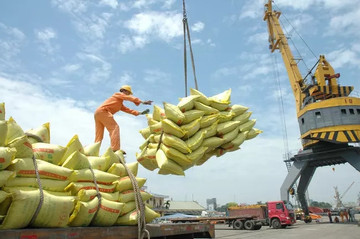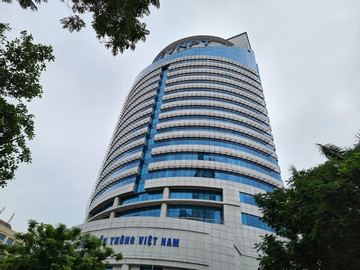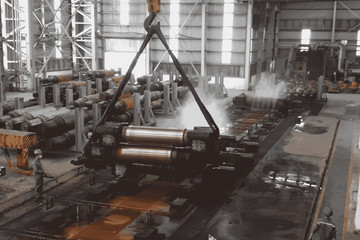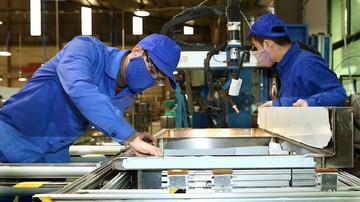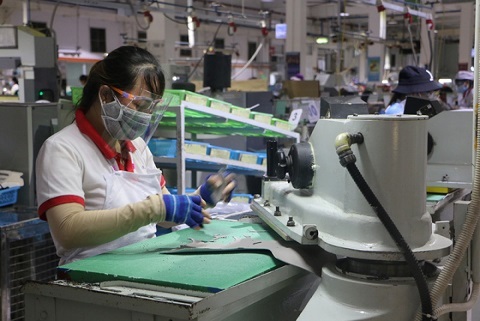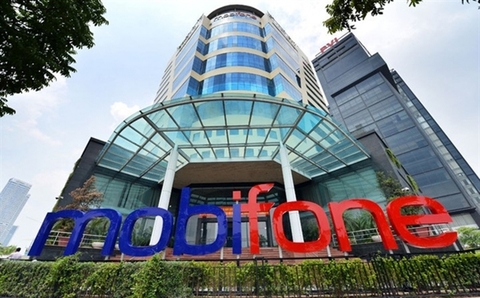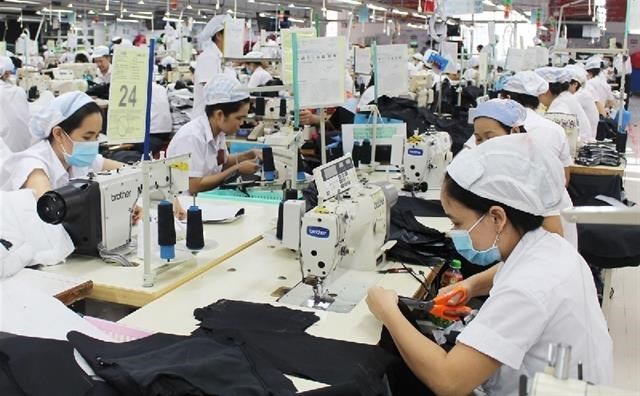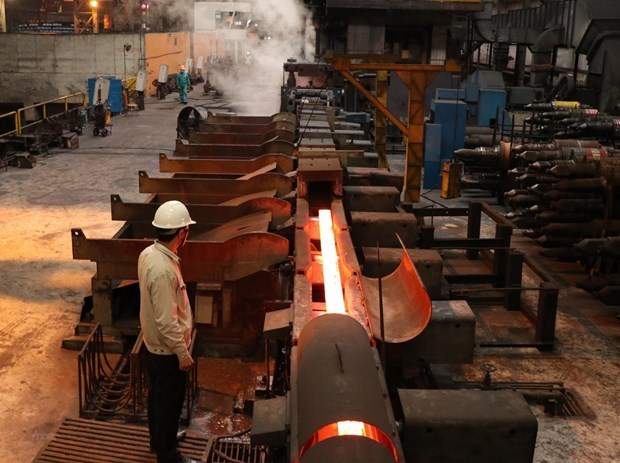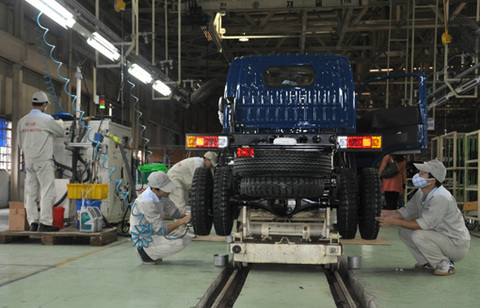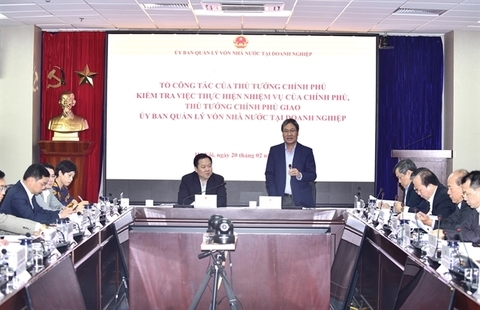- © Copyright of Vietnamnet Global.
- Tel: 024 3772 7988 Fax: (024) 37722734
- Email: [email protected]
state-owned enterprises
Update news state-owned enterprises
VN needs new policy to help form multi-billion dollar businesses: expert
Vietnam has large corporations with capital of trillions of dong called the "iron fists" of the national economy. However, they need more support and encouragement to further growth to obtain regional and international stature.
SOE equitization: investors target ‘golden land’ owned by enterprises
Some state-owned enterprises (SOEs), after equitization, have changed their production and business models to exploit advantages in land, thus ‘killing’ their core businesses.
Market cap of 10 State-owned firms expected at US$5 billion each by 2025
The Government has set a target that at least 25 State-owned enterprises will have a market capitalization of over US$1 billion each by 2025, including a minimum of ten firms with a market cap of over US$5 billion each.
Government issues new action plan for private economic development
Vietnam aims to have 1.5 million businesses by 2025, including 60,000-70,00 medium and large-scale enterprises.
Untie problems for SOEs, Vietnam’s economic locomotives
At a recent conference on State-owned enterprises (SOEs), Minister of Planning and Investment Nguyen Chi Dung said that the Government will make significant decisions to solve problems and create motivation for the development of SOEs.
SOEs hold one-fourth of total production capital of society
Accounting for only 0.08% of the total number of active enterprises in Vietnam, state-owned enterprises (SOEs) hold huge resources of the economy with more than a quarter of the total production and business capital of society.
SOE equitisation slow this year due to COVID-19
The outbreak of COVID-19 in many localities has delayed the equitisation of State-owned enterprises (SOEs).
SOE performance during the Covid-19 pandemic
Many state-owned enterprises (SOES) experienced a turbulent year in 2020. In the first half of 2021, many businesses escaped the crisis and gained impressive results.
Ministry proposes special policies for large SOEs
The Ministry of Planning and Investment has proposed special policies for large State-owned enterprises (SOEs) to make them spearheads in key industries of the economy.
Super committee fails to report SOEs' performance on time
The Ministry of Finance (MoF) has said the supervision of financial results from State-owned enterprises (SOEs), carried out by the Committee for Management of State Capital at Enterprises, (or Super Committee) was “very slow”.
Vietnam looks to attract foreign investment in equitisation of SOEs
As the Government is focusing on accelerating the privatisation and divestment of State-owned enterprises (SOEs), attracting foreign investment is important to the success of the progress,
Unprofitable SOEs avoid bankruptcy
The number of bankrupt state-owned enterprises (SOE) in reality is low, and is not commensurate with the number of private enterprises in bankruptcy.
MPI prepares new decree on SOE information disclosure
The Ministry of Planning and Industry (MPI) is developing a new decree to guide State-owned enterprises (SOEs) on disclosing information, aiming to...
Conflicting policies, land issues and virus hinder SOE equitisation
 The equitisation of State-owned enterprises (SOEs) was being hindered by troublesome policies, lack of transparency in land management and the recent devastation inflicted by the COVID-19 pandemic, experts said.
The equitisation of State-owned enterprises (SOEs) was being hindered by troublesome policies, lack of transparency in land management and the recent devastation inflicted by the COVID-19 pandemic, experts said.
Equitisation of State-run enterprises remains slow: finance ministry
 The equitisation of State-owned businesses from 2016-2019 fell behind schedule, putting heavier pressure on this year, according to the Ministry of Finance.
The equitisation of State-owned businesses from 2016-2019 fell behind schedule, putting heavier pressure on this year, according to the Ministry of Finance.
Ministry addresses land issues to boost SOEs’ equitisation
 As issues related to land use rights still hinder State-owned enterprises (SOEs) from executing equitisation on time, the finance ministry has built a draft to amend the current decree regulating land issues.
As issues related to land use rights still hinder State-owned enterprises (SOEs) from executing equitisation on time, the finance ministry has built a draft to amend the current decree regulating land issues.
Ministries ask for permission to change SOE divestment plans
 Ministries are working to convince Prime Minister Nguyen Xuan Phuc to amend divestment plans at some large State-owned enterprises (SOEs).
Ministries are working to convince Prime Minister Nguyen Xuan Phuc to amend divestment plans at some large State-owned enterprises (SOEs).
VN to develop large-scale SOEs
 The Government has asked the Ministry of Planning and Investment to build a project on developing large-scale State-owned enterprises (SOEs) to promote their role in the country’s socio-economic development.
The Government has asked the Ministry of Planning and Investment to build a project on developing large-scale State-owned enterprises (SOEs) to promote their role in the country’s socio-economic development.
Ministries ask for permission to change SOE divestment plans
 Ministries are working to convince Prime Minister Nguyen Xuan Phuc to amend divestment plans at some large State-owned enterprises (SOEs).
Ministries are working to convince Prime Minister Nguyen Xuan Phuc to amend divestment plans at some large State-owned enterprises (SOEs).
Super committee faces difficulties in checking SOE property
 The increasing amount of property and land under State-owned enterprises (SOEs) was mentioned as a factor in their slow equitisation.
The increasing amount of property and land under State-owned enterprises (SOEs) was mentioned as a factor in their slow equitisation.

